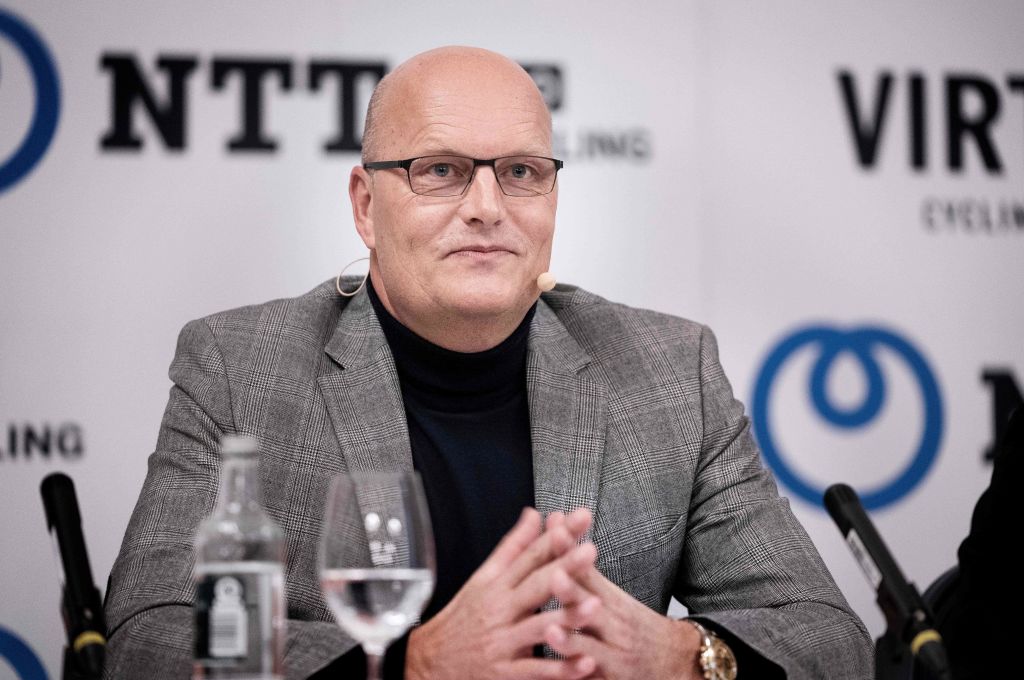
Bjarne Riis has said goodbye to cycling after nearly 40 years as a professional rider, team owner and manager. An icon of the infamous 1990s period, the 1996 Tour de France winner has said his time in the sport is a “finished chapter” with family and new business ventures in mind.
Riis first revealed his plans in September, confirming his family has also moved back to Denmark from Switzerland. He has recently co-founded the company Riis Energy, which sells heat pumps imported from Lithuania alongside becoming a board member of Nørtec - a company selling laundry appliances and electric vehicle charging stations.
"A cycling team is not much different from a company. Both places are about people. You have to have an organization to function and perform,” said Riis on the company’s website.
“In addition, it is about motivating employees and helping them to utilize their full potential. Why settle for mediocre when you can create world-class instead?”
The Dane took his Tour de France victory a year ahead of Team Telekom teammate Jan Ullrich who has recently made a full confession to doping.
Ullrich was 23 then and went on to win the 1997 Tour de France before building a long rivalry with Lance Armstrong, followed by a difficult period of doping and personal battles with addiction, but is now on a different path to personal redemption.
Ullrich, in contrast to Riis, is eyeing a return to the sport after overcoming the dark times when recreational drugs and alcohol abuse nearly killed him and kept him away from cycling for a long time. He revealed further details of why he doped before the release of the four-part documentary on his troubled life - 'Der Gejagte' ('The Hunted').
Riis’ doping past was fully uncovered in 2007 when he confessed to using EPO, growth hormone and cortisone during the 1996 Tour. He famously stated: “My yellow jersey is in a box in my garage at home. You can come and collect it." His win was taken out of record books like Armstrong's were before being reinstated in 2008 with an asterisk.
Since then Riis went on to play a huge role in the CSC-ProTeam turned Saxo Bank-Tinkoff project as a team owner and then manager, where he oversaw Tour de France victories by Carlos Sastre, Andy Schleck and Alberto Contador.
He also faced fresh doping allegations from riders on the team including Tyler Hamilton and Michael Rasmussen which in 2020 he admitted had hurt and worn him down. That was during one of his final stints in the sport as a team manager and part-owner of the NTT Pro Cycling team.
"The last few years down in Switzerland, I've been thinking a lot about what I should do going forward, and in that process, I've come to the point that cycling, where I've been - that's a finished chapter. I think I want to do something else," said Riis to Børsen.
Riis hasn't completely avoided the sport, however, still finding time to watch Jumbo-Visma and two-time Tour winner Jonas Vingegaard, who became the first Dane to win La Grand Boucle since Riis in 2022. He has occasionally commented on racing on Danish television.
"I still follow along - probably a little too much, if you ask my wife - and if you look at Jumbo-Visma, they are just so talented. Of course, they also have a large budget, but nothing is left to chance and they do everything they can to chase the marginal gains that can give them a competitive advantage,” said Riis.
“In terms of communication, they could do better, I think, but in all other areas, they are so far ahead of the rest.”
Riis has tried hard to move past the doping past that follows him, stating to Børsen that it could have been very different for him had he not been so strong with his family by his side.
“I've never hid and I've always stood up to a beating over the years. I've acknowledged my mistakes and moved on, but just because I did something wrong once doesn't mean I'm a bad person. I can still be a good leader and I can still inspire people,” he said.
“I just thank myself for being a strong person and for having a good family behind me. Of course, I have had my crises If I hadn't been strong, I probably would have had a slightly different life.
“Just take Jan Ullrich, "You don't have to look any further.”
Ullrich hit rock bottom in 2018 when he suffered a mental and physical breakdown but has since recovered, crediting his children as part of that process with a hunger for life and desire to see them grow up.







